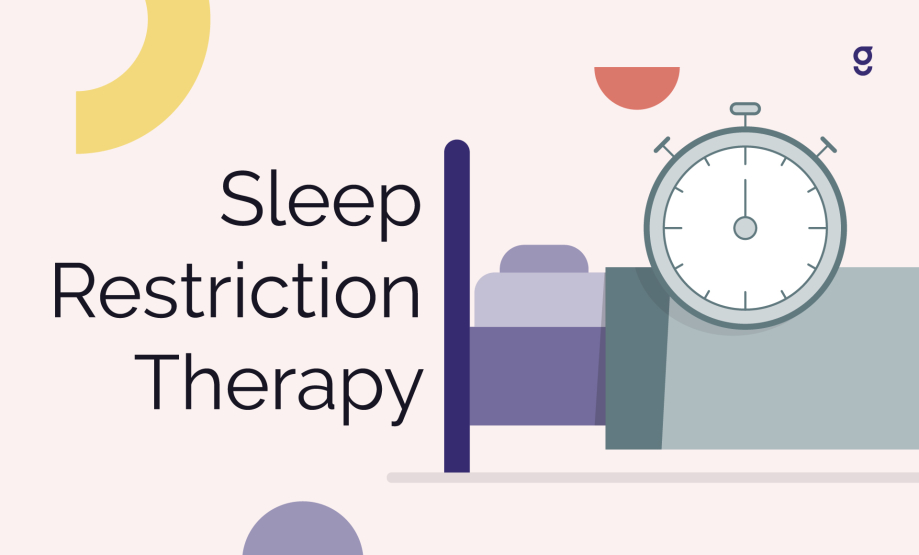Experienced Insomnia Specialist - Personalized Care for Better Sleep
Experienced Insomnia Specialist - Personalized Care for Better Sleep
Blog Article
Reliable Treatment Solutions for Handling Sleep Disorders and Enhancing Relaxing Rest
In the world of health care, the monitoring of sleep conditions and the mission for restful rest are crucial elements of general well-being. Effective treatment options offer a diverse technique to tackle these obstacles, varying from cognitive behavior interventions to holistic practices that advertise leisure and mindfulness. The exploration of different techniques, consisting of the integration of medicine and light therapy, opens up a world of possibilities in the pursuit of far better sleep high quality. As we navigate the elaborate landscape of rest conditions and seek to boost our sleep experience, a deeper understanding of these treatment options might hold the key to opening a much more rejuvenating and satisfying corrective journey.
Cognitive Behavior Modification for Sleeplessness (CBT-I)
Cognitive Behavior Treatment for Insomnia (CBT-I) is a structured, evidence-based treatment method that concentrates on addressing the underlying factors adding to sleep disturbances. This sort of therapy intends to modify actions and ideas that intensify insomnia, ultimately promoting healthy rest patterns. CBT-I commonly entails a number of essential elements, including cognitive therapy, sleep limitation, stimulation control, and rest health education.
Cognitive treatment assists individuals identify and change adverse idea patterns and ideas regarding sleep that may be impeding their ability to drop or remain asleep. Rest constraint includes limiting the quantity of time invested in bed to match the individual's actual sleep period, thereby enhancing sleep performance (insomnia solutions). Stimulation control methods help establish a solid association between the bed and sleep by motivating individuals to visit bed just when drowsy and to avoid participating in boosting activities in bed
In addition, rest hygiene education concentrates on developing healthy rest routines, such as keeping a constant rest schedule, developing a relaxing going to bed routine, and optimizing the rest atmosphere. By dealing with these variables adequately, CBT-I offers an effective non-pharmacological intervention for taking care of sleep problems and boosting general sleep top quality.
Sleep Health Practices
Having established the structure of cognitive restructuring and behavioral adjustments in dealing with sleeplessness with Cognitive Behavioral Treatment for Sleeping Disorders (CBT-I), the emphasis now moves in the direction of checking out necessary Sleep Hygiene Practices for preserving optimal rest top quality and total wellness.
Rest hygiene practices include a series of behaviors and environmental elements that can significantly affect one's capacity to go to sleep and stay asleep throughout the evening. Consistent sleep and wake times, creating a relaxing going to bed routine, and enhancing the sleep atmosphere by maintaining it dark, quiet, and cool are critical parts of good sleep health. Restricting direct exposure to displays before bedtime, avoiding stimulants like caffeine close to going to bed, and participating in routine exercise throughout the day can additionally promote better sleep high quality.
Furthermore, practicing leisure methods such as deep breathing exercises or meditation prior to bed can assist relax the mind and prepare the body for rest. By integrating these rest health methods right into one's everyday routine, people can develop a healthy and balanced sleep pattern that supports relaxed rest and overall health.
Relaxation Methods and Mindfulness
Implementing relaxation strategies and mindfulness methods can play a pivotal function in promoting a feeling of calmness and promoting top quality rest. Additionally, guided imagery can help transfer people to a serene location in their minds, assisting in stress decrease and boosting rest top quality.
Mindfulness practices, such as meditation and yoga, are likewise efficient in advertising relaxation and improving sleep. Mindfulness encourages people to remain present in the moment, letting go of stress over the past or future. By incorporating these methods right into a going to bed regimen, individuals can signal to their bodies that it is time to prepare and loosen up for sleep. Overall, integrating relaxation techniques and mindfulness practices can substantially contribute to taking care of rest conditions and enhancing overall rest top quality.

Medicine Options for Rest Disorders
After exploring relaxation methods and mindfulness practices as non-pharmacological treatments for boosting sleep quality, it is important to think about medicine alternatives for individuals with sleep conditions. In cases where way of living adjustments and therapy do not offer adequate alleviation, medicine can be an important tool in managing rest disruptions.
Typically recommended medications for sleep disorders include benzodiazepines, non-benzodiazepine hypnotics, antidepressants, and melatonin receptor agonists. Benzodiazepines, such as diazepam, are sedatives that can assist official website cause sleep, however they are commonly advised for temporary usage due to the risk of dependancy. Non-benzodiazepine hypnotics like zolpidem are also utilized to treat sleep problems and have a reduced danger of dependence compared to benzodiazepines. Antidepressants, such as trazodone, can be helpful for individuals with co-occurring depression and sleep disruptions. Melatonin receptor agonists, like ramelteon, target the body's natural sleep-wake cycle and can be valuable for regulating sleep patterns.
It is essential for individuals to speak with a health care service provider to establish one of the most appropriate medicine option based on their specific rest disorder and case history.
Light Therapy for Body Clock Policy
Light therapy, additionally referred to as phototherapy, is a non-invasive therapy approach made use of to manage circadian rhythms and enhance sleep-wake cycles. This treatment entails exposure to intense light that imitates all-natural sunlight, which assists to reset the body's biological rhythm. By revealing individuals to particular wavelengths of light, commonly in the morning or evening depending on the wanted impact, light treatment can efficiently readjust the body clock to promote wakefulness throughout the day and boost relaxing sleep in the evening.
Study has shown that light treatment can be especially beneficial for individuals with body clock conditions, such as delayed sleep phase disorder or jet lag. It can likewise be valuable for those experiencing seasonal depression (SAD), a type of anxiety that usually takes place throughout the winter months when all-natural light exposure is decreased. Light therapy is typically well-tolerated and can be used combined with other treatment techniques for rest disorders to enhance results and boost total sleep top quality.
Conclusion
Finally, effective treatment options for managing sleep disorders and enhancing relaxed sleep include Cognitive Behavior modification for Sleeplessness (CBT-I), sleep health methods, leisure methods and mindfulness, drug options, and light treatment for body clock guideline. These approaches can help people boost their rest quality and general health. It is vital to talk to a medical care company to identify the most appropriate approach for attending to sleep concerns.
As we navigate the complex landscape of rest disorders and look for to improve our sleep experience, a deeper understanding of these treatment services might hold the secret to unlocking an extra relaxing and satisfying corrective trip.
Sleep constraint includes limiting the quantity of time spent in bed to match the person's real sleep period, consequently enhancing rest performance. Regular sleep and wake times, producing a relaxing bedtime regimen, and maximizing the sleep atmosphere useful link by keeping it dark, silent, and cool are essential parts of great rest health. Light treatment is generally well-tolerated limb movement disorder and can be utilized in combination with various other treatment methods for sleep problems to enhance outcomes and enhance overall sleep quality.

Report this page